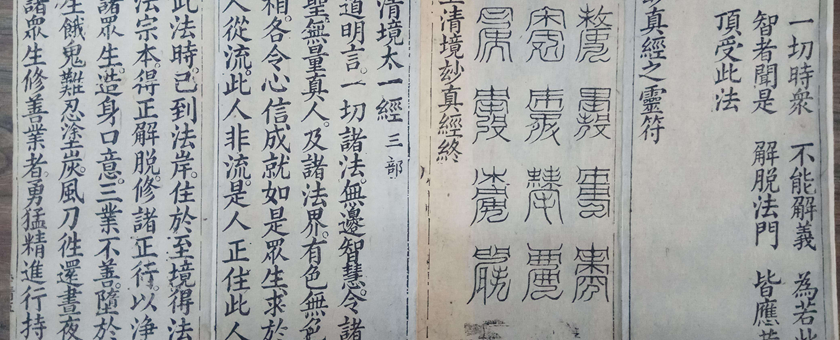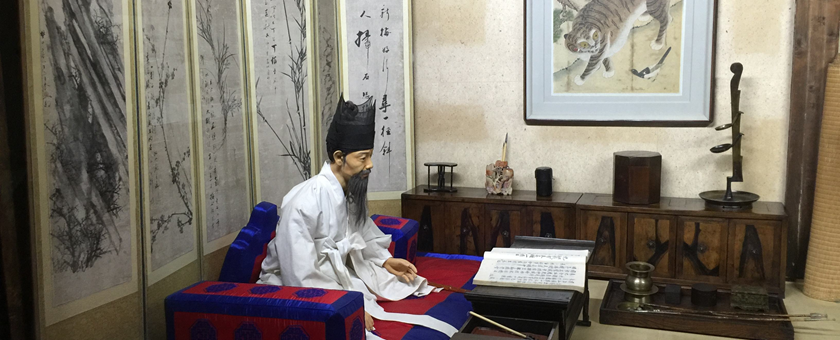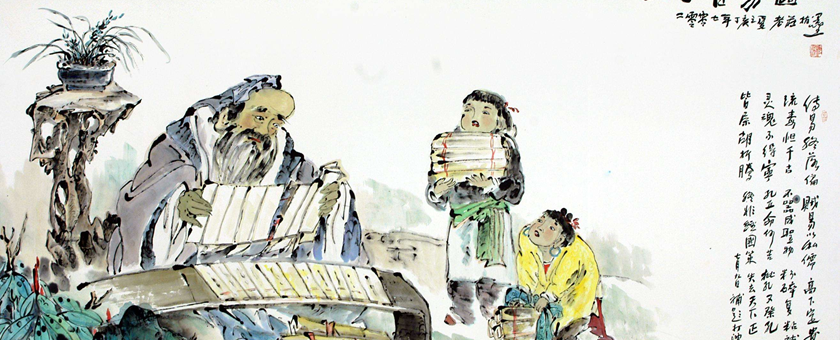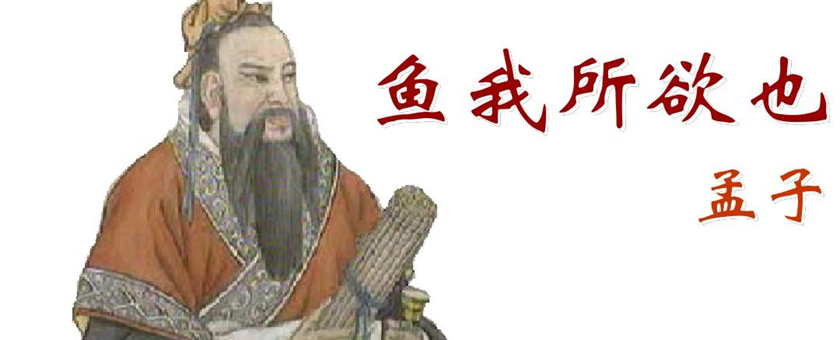Confucianism
Confucianism, along with Buddhism and Taoism, is known as the three religions in China, with "Confucianism" as the highest belief. Confucius is respected as the first teacher, in order to distinguish the later generations from Taoism which advocates Huang Lao Zhuang and other Taoist thoughts. It is called "Confucianism" from the Northern and Southern Dynasties, so Confucius is also respected as the holy master of Confucianism.

Confucianism is a world view, a social ethics, a political ideology, an academic tradition and a way of life. Sometimes seen as a philosophy, sometimes as a religion, Confucianism can be understood as an all-encompassing way of thinking and living that includes reverence for one's ancestors and a deep people-centered religious belief.
Although Confucianism is often relegated to the major religions of history, it differs in that it is not an organized religion. However, under the influence of Chinese culture, it spread to other countries in East Asia and had a profound impact on spiritual and political life. The theory and practice of Confucianism have left an indelible mark on the politics, society, education and family of east Asian countries. Although it is an exaggeration to describe traditional Chinese life and culture as Confucianism, for more than 2,000 years Confucian ethical values have been a source of inspiration and a place for people to communicate with each other.

Development History of Confucianism
Confucianism was further developed by Mencius (372-289 BC) and Xunzi. It was promoted to the state ideology during the reign of Emperor Wudi of the Han Dynasty. From then on, it became an orthodox doctrine in Chinese society, and Confucius was respected as a saint.
In the coming Wei and Jin Dynasties, Confucianism coexisted with Buddhism and Taoism. In the Sui and Tang Dynasties, the struggle for dominance among The Three Kingdoms became increasingly fierce. Song Dynasty was an important period for its development. It features the Ming school of thought and restores its orthodox status for more than 700 years.
The new cultural movement of 1915 took science and democracy as its banner and attacked feudalism, including Confucianism, its core ideology. During the cultural revolution, it suffered another violent attack.
To our delight, many scholars have devoted themselves to the study of Confucianism and its application in modern society. Such research is important because the Chinese language has undergone considerable changes over the centuries, and the absence of any punctuation marks in the ancient classics makes it difficult to fully understand his ideas.
Confucianism is both concise and profound. Strictly speaking, it is not a religion, more a doctrine than a faith, and the meaning behind the flowery words makes the long postmodernism look pale and tedious. It is part of the world cultural heritage and part of Chinese life.

Famous Theorist of Confucianism
Confucius -- Patron Saint
Confucius (551-479 BC), founder of Confucianism, was born in Qufu City, Shandong Province. His name was Kong Qiu; his courtesy name was Zhong Ni, and the Chinese called him Confucius. He was an outstanding thinker and educator at the end of the Spring and Autumn Period.
He was born in poverty, but he managed to get a good education. It is said that Confucius finally became the prime minister of Lu Dynasty at the age of fifty. However, his political opponents conspired to force him to retire at the age of 55. He then led his disciples on a long journey to preach his teachings in these competing countries and to advise the rulers on how to govern. However, he was depressed. In his later years, he was engaged in education. According to legend, there were 3000 disciples and 72 famous teachers.
Politically, he insisted on strict social stratification to maintain public order, advocated self-cultivation, and opposed autocracy. The main ethical characteristic he advocated was benevolence. In the theory of education, he emphasized the combination of personality education and learning, and advocated that "learning without thinking is confusing"and that “thinking without learning isuseless ."

Mencius
Mencius was another important thinker of Confucianism and was respected as "secondary sage". His main doctrines were "benevolent administration" and "the people are more valuable than the king". His teachings were not accepted by monarchs during the Warring States Period, but his speeches and those of his disciples were incorporated into the Mencius.

Dong Zhong Shu
Dong Zhong Shu, is a famous Han Dynasty philosopher. In the famous "countermeasures for good", he combined the need of the society at that time, and absorb the theory of other schools, and created a new thought system with Confucianism as the core. The "unified" theory claims was adopted by the emperor, Confucian orthodoxy of Chinese society, and affected more than two thousand years. The school takes the Confucian patriarchal ideology as the center, mixed with the theory of Yin and Yang and the five elements, running through the theocracy, the monarchy, the patriarchy and the patriarchy, forming the imperial theological system.

Xunzi
Xunzi advocated the theory of evil nature, which is often compared with Mencius' theory of good nature. The practice norms and principles put forward by Confucius and Mencius in the aspect of cultivating one's morality and governing one's country are very specific, but at the same time, they are full of idealism. Although Xunzi thought, together with Confucius and Mencius, it has its own unique view and has its own saying. Compared with Confucius and Mencius, Xunzi's thought has more realistic tendency. While paying attention to moral education, he also emphasized the punishment function of political and legal system.

Wang Yang Ming
Wang Yang Ming's psychology advocated emancipating people's minds, getting rid of the shackles of tradition, and praising the equality of peoples. For the first time, he pointed out the importance of merchant. Already had the embryonic form of early thought enlightenment, the inner structure of mind learning is composed of the unity of knowledge, action and conscience. In this structure, Wang Yang Ming speaks with the heart, and then interprets the heart with the conscience. The heart (conscience) constitutes the cornerstone of the mind.

Confucianism in Modern China
Although Confucianism has been marginalized for nearly a century in modern China, it is so deeply rooted in most Chinese.
In recent years, there has been a revival of this philosophy. China's top leadership is also promoting this ideology. China's version of the British council, the Confucius institute, has been set up to promote Chinese culture to the world. The Confucian code of conduct is widely followed by the business Chinese community both inside and outside China.

Influence of Confucianism
Confucianism is a philosophy, not a religion, and a set of principles that Chinese people follow. It was hoped that through such acts of kindness, people could live harmoniously together under the traditional Chinese system, which was an authoritarian system of altruism. People are expected to obey their superiors (hierarchical patriarchy) and fight selflessly for the common good. Temperance is regarded as the chief virtue. Emperors and those in power were also expected to follow Confucian principles of governance, thereby undermining the theocracy of the emperor. Confucius suggested that rulers should "govern the people with love and treat others with courtesy". Confucius dreamed that by doing so, the state would be as strong as his ideal, and in the Western Zhou Dynasty "all orders were given by the emperor".
Confucianism influenced the cultural development and moral standards of east Asian countries. Back in the first century, many Koreans remembered the Confucian classics. Confucianism was also used as an ideological tool to rule the people. Confucianism was introduced into Japan around the fifth century. The earliest Japanese Confucian scholars devoted themselves to the translation of Confucian classics and the elaboration of Confucianism. During the Tokugawa period, Confucianism reached its peak in Japan.
Driven by the globalization of culture over the past few decades, Chinese Confucianism has spread around the world. Since 2006, hundreds of Confucius institutes have been established in 127 countries and regions. Confucius has become a cultural icon in China, beloved by lovers of Chinese culture around the world.


 Flow us
Flow us

